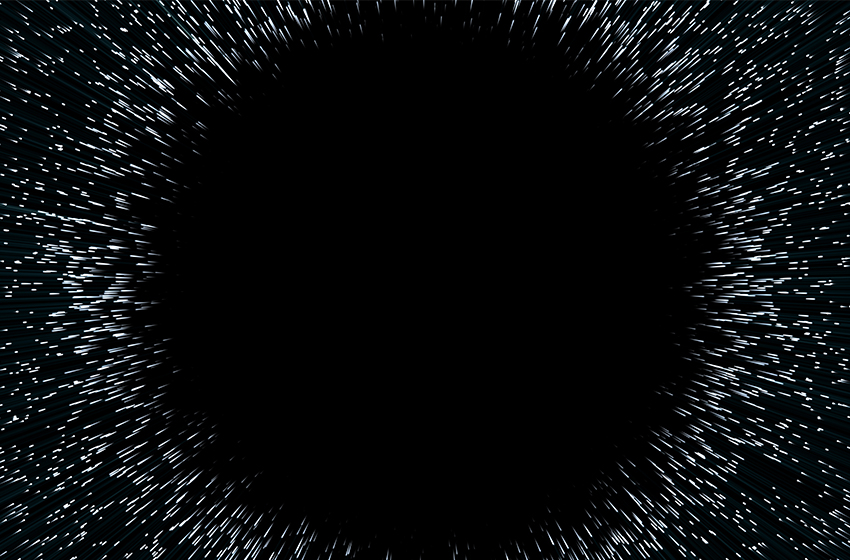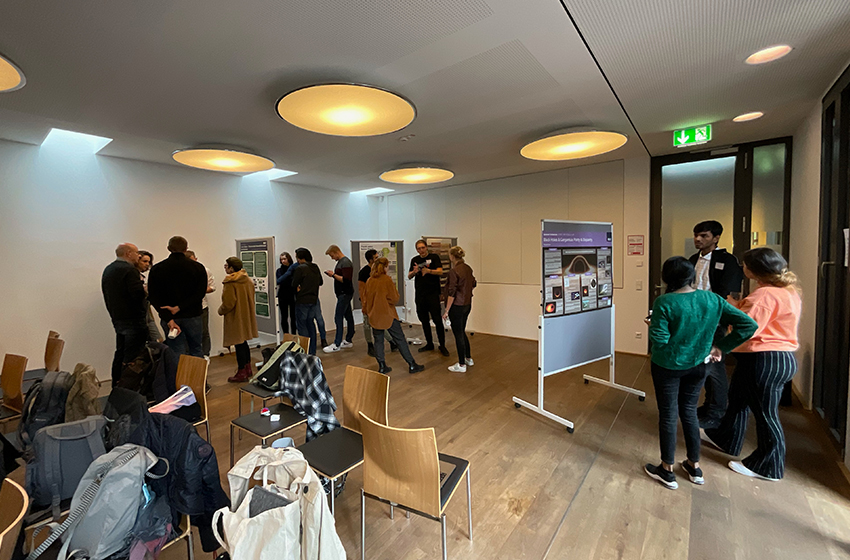In Hollywood, anything is possible, but what about in reality? Since its release in 2014, Christopher Nolan's science fiction film "Interstellar" has not only been celebrated by movie fans, but many scientists* have also praised the film for its scientific approach. Thanks to PhD student Sophie Aerdker and PD Dr. Horst Fichtner from the Faculty of Physics and Astronomy at RUB, a good 20 students from various disciplines were able to get to the bottom of the phenomenon during the past summer semester. In the interview, Sophie Aerdker tells us more about the project.
Sophie, science fiction movies are many, why did you decide to offer a Summer School on the movie "Interstellar"?
Science fiction films quickly establish common ground for students from different departments. Interstellar is a great example of science fiction with the emphasis on "science." Also, there is a book on the film, The Science of Interstellar, by Kip Thorne, the Nobel Prize winner for gravitational waves. In the book, the science of the film is highlighted, so that was a perfect fit for our project. You're sometimes surprised what's actually science and what's fiction in science fiction films. Sometimes it's the other way around than you think. Thorne also advised director Christopher Nolan directly on the film. We then planned and designed the Summer School based on the book.
The seven chapters of Thorne's book deal with various scientific topics in film. How did you prepare the topics and tasks for the Summer School?
The students did that themselves. We had several, mostly interdisciplinary, groups. In addition to physics students, there were, for example, students from biology, electrical engineering, mechanical engineering, environmental engineering, but also from linguistics and communication science. We were also able to get a student from business psychology interested in the Summer School.
All the groups got hold of the book and then developed questions on various research topics that could be found in the book. Of course, the film was always the starting point, so we looked, for example, at how realistically the topics and scenarios were portrayed.
Among other things, the students dealt with exoplanets, black holes or the question of how interstellar travel actually works and whether there are any current possibilities for it.
How did the groups work on the topics? Surely there were exciting approaches in interdisciplinary teams?
Yes, we not only saw a wide range of topics, but also different approaches in the preparation of the topics. One physics group wrote a simulation that visualized a flight through a wormhole. During the poster session at the end of the Summer School, everyone could "fly" through the wormhole with keyboard and mouse. But there was also a group that dealt with ethical issues related to scientific findings. In the film, NASA officially no longer exists, but it continues to operate in secret without the public knowing. In the film, this group knows that life on Earth no longer has a future, but does not communicate this knowledge. So this team has addressed the question of whether or not such knowledge needs to be communicated to the public in reality. There was also a group on the topic of climate change and possible scenarios on Earth. They looked at how realistic similar dramatic scenes as in the movie would be on our earth.
Another group looked at the psychological requirements and challenges of interstellar travel. For this they looked at polar expeditions from the beginning of the 20th century, analyzed them and made comparisons. All in all, we really had a lot of great and exciting projects.
Excerpt "Interstellar
In September, you then organized a student conference out of the Summer School. How did that work out?
Exactly, that was the second part of the Summer School that we prepared in a project week, before that the students worked alone in their groups. The students worked on the content of their topics beforehand and prepared a rough draft in which they summarized their results.
I then divided these abstracts among the groups, so that each group worked on the elaboration of another. On the first day of the project week, the groups then met and discussed their elaborations with each other. We wanted to create a kind of peer review, similar to what is done before scientific conferences. Afterwards, the groups revised their abstracts and only then created their presentations and posters for the conference at Beckmanns Hof. For the poster creation, we went to a poster workshop with the students in the Makerspace of the RUB, which was really great.
For the conference itself, we invited speakers from different disciplines, who gave longer talks in addition to the students' short presentations, just like at a real conference.
Photo: Aerdker
What was the feedback from students about the seminar?
Very positive! It was a special format and something different from the "standard" seminars, which went down well with the students. The atmosphere in Beckmanns Hof was also nice, it's quite different from sitting in the usual seminar rooms.
Part of the concept of our Summer School was also to give the students a bit of a competitive edge and to really put energy into their projects. That's why we chose the best poster and the best presentation at the end of the conference. The students were allowed to vote among themselves and the winning teams are now allowed to present their results in the planetarium.
Would you offer a similar summer school again? Would you change anything?
Yes, I would like to offer something like that again. For example, there is still the film "The Martian", which is also great research.
Then I would especially try to bring the conference into the public sphere better at the end, i.e. a little away from the university, so that the interested public has easier access and choose a different time for the event.
Many thanks to Sophie Aerdker for the interview.



